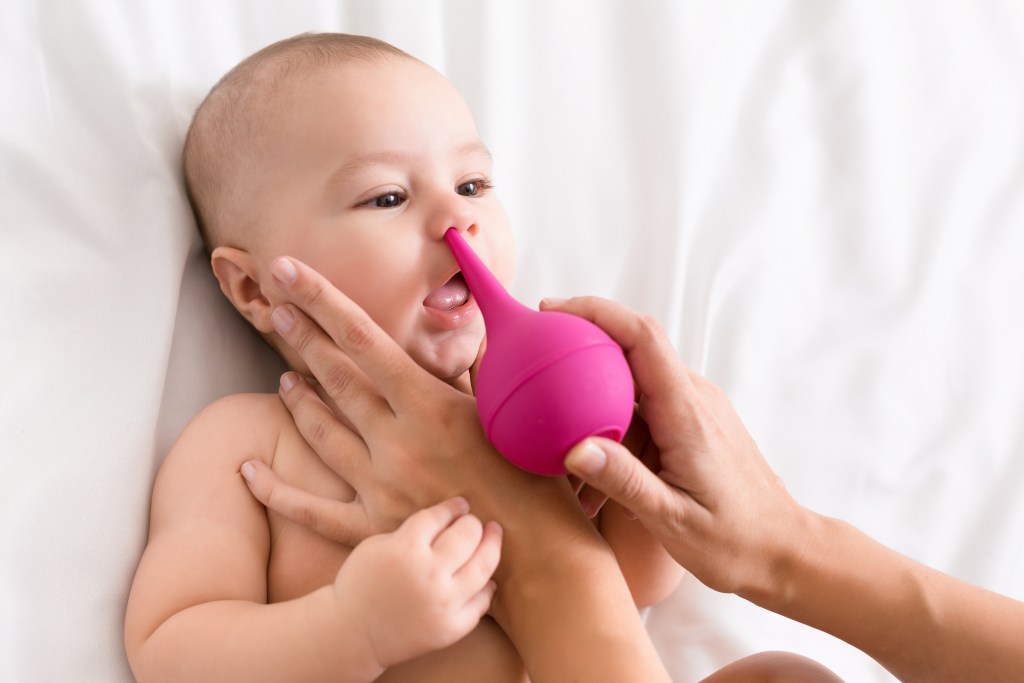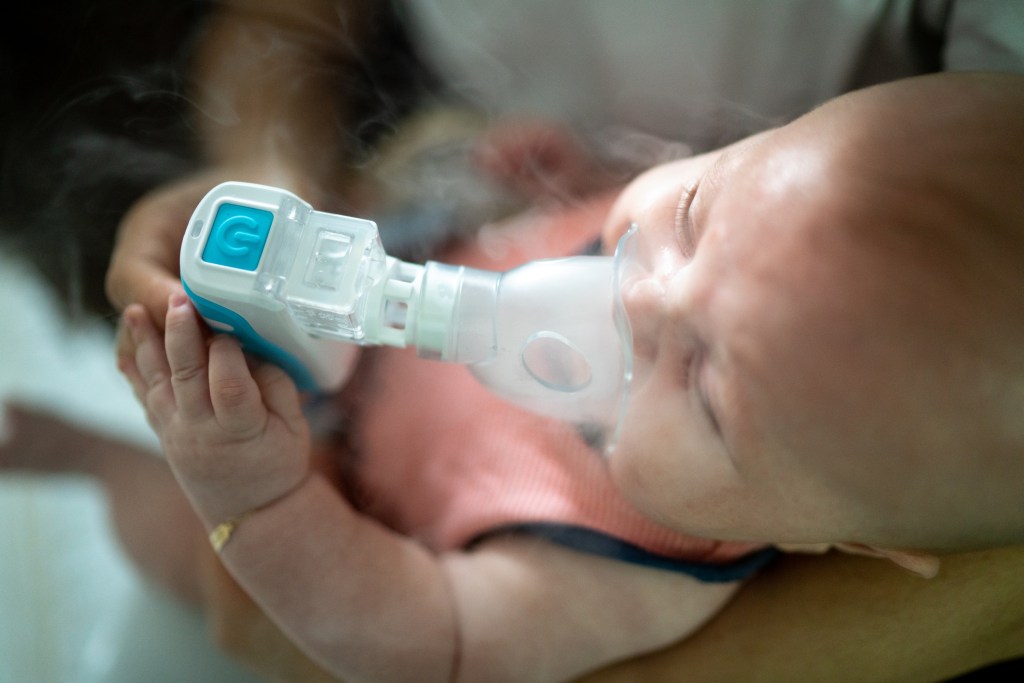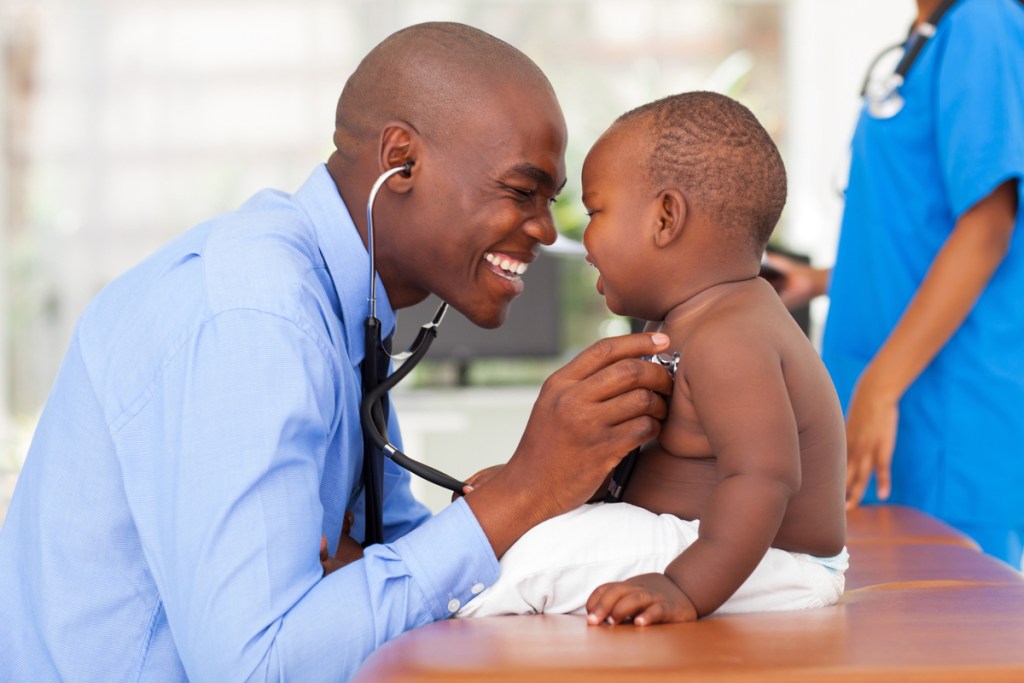Once you become a parent, worrying just becomes a part of your life, especially when your child is a newborn. Parents can stare at their newborn for hours, simply marveling at how amazing they are, but they can also find themselves worrying every time their baby flinches, cries out, or worse yet, seems to show changes in their breathing pattern.
Newborns have a very different way of breathing than adults, which is why it can often be alarming for new parents as they watch their newborns breathing heavy or rapidly. Although newborns breathe differently and more rapidly than adults, it’s important to recognize when your newborn’s breathing may be cause for concern. Read on to find out what normal breathing looks like with newborns and when you should be worried.
What does normal newborn breathing look like?

Newborns don’t breathe the same as adults or even older children, simply because they’re learning to breathe on their own for the first time. Newborns, up until the age of about 6 months, tend to breathe quite fast, which can be alarming for those who aren’t expecting that. Studies show that newborns can take as much as 40 breaths per minute, compared to an adult who may take between 12 and 20 breaths per minute. They also may have long pauses between breaths, sometimes as long as 10 seconds, before their breaths increase again. It can all be a bit alarming for any new parent who has never experienced that.
Why does it seem like my newborn is having trouble breathing?

Newborns breathe through their noses more than their mouths and will often have pauses in their breathing as they alternate between fast and slow breaths. Many experts advise parents to watch their newborns when they’re feeling well, to become familiar with how they breathe, and maybe even time their breaths so they have something to compare to if they suspect their baby isn’t breathing normally.
If your baby is upset or hungry and is crying, their breathing may intensify. Although this may be alarming, their breathing should go back to normal once your newborn is comfortable once again. You may worry if your newborn is coughing, but Healthline notes that the occasional cough or grunt is actually “a good natural reflex that protects your baby’s airways and keeps germs out.” If you’re concerned about your baby’s breathing, monitor them for a few hours and always contact your medical provider if you’re concerned that there is an issue.
What are the different breathing problems?

There are a variety of different breathing problems that can affect a newborn, with some more common than others. Continuous rapid breathing that doesn’t abate when your newborn is calm could be a sign of a breathing problem, as can pauses in breathing longer than 20 seconds, according to What To Expect. Wheezing can also be a sign of the respiratory virus bronchiolitis, which is quite common in newborns, as is the occasional grunting noise. Making whistling noises or coughing are also indications your newborn may be experiencing a respiratory problem.
When should I worry about my baby’s breathing?

It can be hard for new parents to know when their newborn’s breathing is normal or something to worry about, but there are some signs that experts warn require medical attention. The Children’s Hospital of Philadelphia warns that continuous rapid or irregular breathing (more than 60 breaths per minute) could be a sign of a respiratory problem. Breathing pauses that last longer than 10 seconds could be a sign of apnea. Although most infants grow out of apnea, it should be treated by a medical professional.
If your newborn flares their nostrils as they breathe, that may indicate they’re having trouble taking in enough air. While the occasional grunt or cough is normal, persistent grunting or coughing can indicate a more serious problem. If you notice your baby pulling the chest in at the ribs, below the breastbone, or above the collarbones when breathing, they could be experiencing respiratory issues. Lethargy, issues feeding, and fever are also signs that your baby may not be breathing well. Healthline warns that parents should call 911 immediately if their newborn’s tongue, lips, fingernails, and toenails turn blue, or if they stop breathing for 20 seconds or more.
Newborns will often experience the occasional breathing problem symptom, which is totally normal, however, as WebMD notes, it’s when these symptoms become persistent that it becomes time for concern. If you’re worried about how your newborn is breathing, you should always reach out to your pediatrician for expert advice. Becoming a parent can be stressful, so if your newborn is exhibiting any behavior that has you worried, you should always contact your pediatrician for expert medical guidance.
Editors' Recommendations
- Why do babies growl? Understanding your little one’s weird sounds
- The ultimate nursery checklist of everything you need (and nothing you don’t)
- Baby registry must-haves: This is everything that should be on your list
- What it means if you lose weight during pregnancy – and when to worry
- Why do toddlers hit themselves? The reasons may surprise you




